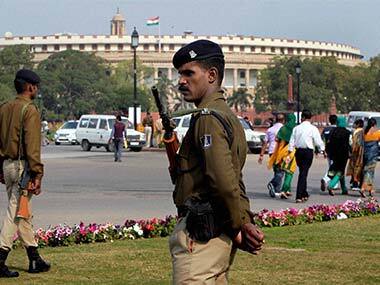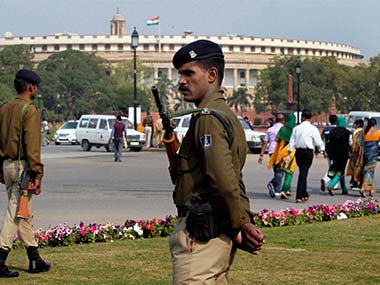The non-functioning of India’s political system is often blamed on law makers who are on the wrong law of side themselves, but an analysis of the working of legislators in the Lok Sabha reveals that even criminal MPs may not be as bad at their job as we’d like to believe. In a revealing study of three parameters of the functioning of Parliamentarians, a study by Pradeep Chibber and Rahul Verma in the Indian Express today shows that while the concept of having lawbreakers as lawmakers may seem reprehensible, it doesn’t mean they don’t work as well as their squeaky clean counterparts. In the study the duo analysed the attendance of MPs in Parliament, the spending of MP’s Local Area Development (LAD) funds and and how much they participated in parliamentary debates, and guess what: being a criminal didn’t affect the performance of MPs. [caption id=“attachment_864589” align=“alignleft” width=“380”]  Can we really guard Parliament from criminal MPs. PTI[/caption] When it came to attendance while MPs with non-serious criminal charges had 74 percent attendance and those with serious charges had 70 percent attendance, while those with no criminal charges against them didn’t do too much better and had a 79 percent attendance record. MPs facing serious criminal charges asked 272 questions in Parliament, while those with non-serious charges asked 305. In comparison, those with no criminal charges asked less questions with only 232 questions. The MPs with criminal records were also as likely to participate in debates in Parliament, the analysis found. And when it came to distribution of MPLAD funds, MPs with criminal records were just as good at utilising the funds as their counterparts. But even the authors point that this doesn’t necessarily mean that the quality of work done by criminal MPs is better, their questions more relevant and their debates better. It also has to be noted that the study is of the present session of the Lok Sabha which has been one of the least functioning sessions of Parliament and one of the least productive. So why do people vote for these MPs? Purely intimidation? No, say the authors. Noting what needs to be changed they say:
The rural poor said that they would not mind voting for a candidate with a criminal record if the candidate can get their work done. They also preferred an approachable politician to an honest politician. The poor’s preference for a politician who can get things done “no matter what” is, in our opinion, because of the daily actions of a state that either treats the poor shabbily all year round, intimidates them, or is simply absent. That needs to be addressed.
So until there is greater transparency and the state machinery functions more efficiently, criminal MPs will continue to come back to Parliament and may even continue to oppose legislation that would prevent their entry. However, what is left unexplained by the study is what is to be done about the non-performing, non-criminal MPs. A performance audit perhaps?


)
)
)
)
)
)
)
)
)



